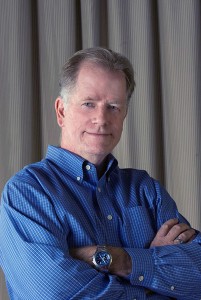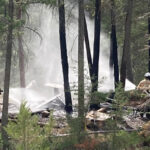Home »

But I am right!
“I am right and no one is going to dissuade me! This must be stopped! We will do everything we can to kill this. Shame on Canada. We will put his through the courts and lie in front of bulldozers to stop this.”
Shame on Canada. Shame on Canadians, I say. No one’s and no group’s individual interests trump our national interests, our provincial interests, our community interests, and our family interests. To take hard line positions that claim my rights trump everyone else’s is bullying.
We must stop the bullying. We must, also, change our expectations and systems. For the good of our families, communities, provinces and nations and for the good of our collective future, we must come together in new ways with pure intentions and collaborative processes to explore together and co-create our outcomes.
Consider the $8 billion Northern Gateway Pipeline Project to transport bitumen from Alberta to British Columbia to world markets through the Pacific Ocean. The Northern Gateway has very significant economic benefits and very significant environmental risks.
The National Energy Board spent 180 days in hearings in 21 communities including nine aboriginal communities and with 12 government participants considering 175,669 pages of evidence filed on the record and 1,179 people who provided oral statements. After all of this, the National Energy Board determined that subject to 209 conditions the project is in the national interest. It is now in the hands of the Government of Canada to decide “if” and “subject to’s”. It is up to the Government of British Columbia and the Government of Alberta and the proponents and opponents to negotiate and assert their own interests.
From the very start of this pipeline proposal, many groups have said; “I don’t care, I will oppose this project” or “I don’t care, I will support this project.” “We are mobilizing our side to …” Most of these “sides” have a less than optimal understanding of the other’s real concerns and interests let alone have taken the time to review the massive tax payer funded National Energy Board Report.
Project proponents face years of delays and hundreds of thousands and, at times, hundreds of millions of dollars in public consultation and regulatory review. Project opponents face none of that. There is no way of considering the extent to which their positions are in the public interest. Neither proponents nor opponents believe the current system is effective. While the lawyers get very fat on all of this, oil companies, aboriginals, environmental protection organizations and “the public” must find this a bizarre way to create our shared future. This endless and, generally, ineffective public consultation approach creates division and misunderstanding. The current review, consultation and legal systems must be reviewed and redesigned to serve their important purposes in these times. In these times, everyone wants to be heard and everyone deserves to be heard. Who listens?
While others blare; “we will stop this” or “We win,” I say; “Do what you feel is right. Make your interest known. And understand that the interests of your community, province and nation trump your self-interests and in that order.” We are a great nation not a series of Balkanized fiefdoms.
I advocate for sustainability. Sustainability embraces economy, environment and community at the same time together. Sustainability is not anyone of the triple bottom lines alone; as long as humanity exists, all three must co-exist. If they don’t, in the long term, humans die and environment exists alone.
Pipeline companies, youth, environmental groups, aboriginal communities and taxpayers all have a great role to serve our national interests. Not one of them is “right” alone. Bullying by individual groups cannot be tolerated. The voices of every group must be honoured and heard.
As a nation, we are experiencing increasing “But I am Right” movements. We are also seeing increasingly costly processes, increasingly long time periods in consultation and increasingly lengthy legal battles to assert the rights of some over others.
As a British Columbian, it worries me that many international economic projects get a naïve yes while others get ground into the ground. During meetings I attended in Prince Rupert almost two years ago with aboriginal and business people, I was told several times “yes” to the LNG, rail lines, shipping ports… totalling an estimated $35 billion and “over my dead body” when it comes to oil sands pipelines and shipping. I find this incredibly naïve and disturbing. We must and will conduct appropriate reviews and processes before we can decide. Yet, when we do, hard line/ narrow-minded folks ignore most all the information that doesn’t align with their positions. Our politicians are put in a very difficult place. They are not experts. They are elected by and represent the people. The people don’t really know. I don’t really know. Neither do you. How can we create a better way?
I am not advocating to stop Northern Gateway or to get Northern Gateway approved by the federal government. I advocate for a new conversation, your new conversation, a national conversation and a global conversation. I advocate for respect, authenticity and collaboration. Let’s shun the bully, the closed off and the inflexible. Let’s understand we are all in this together. This conversation must be more than what we are seeing again and again in Canada.
“We are required to consider any public interest that may be affected, now and in the future, by granting or refusing the applications. Would Northerners and other Canadians be better or worse off if the project is approved? We consider the expected benefits of the project and the costs or negative impacts” is what the National Energy Board in the Mackenzie Valley Pipeline Report defines as “in the public interest.” By the time that regulatory review was complete, the economics of the project had long since disappeared.
I believe that our current way of reviewing applications, consulting the public and determining the public interest creates; ”Death by Consultation.”
As Canadians, if we wish to kill all developments, then let’s at least stop the huge drain on our wallets as well. As Canadians, we will never accept approvals without proper regulatory, environmental and social review.
For many years now, I have advocated for an enhanced and better process to examine the facts, the fears, the opportunities, the values, the risks and identify the public interest that serves a clear and sustainable future for our children, grandchildren and great grandchildren.
Here is how you can do this. I challenge all groups, families, communities, provinces and Canadians to;
Actually read the report of the National Energy Board. As Canadians, we paid for this and should be informed by this.
Ask yourself, when you hear the proclamations of special interest groups (on all sides of this and any controversial project- oil, environment, aboriginal and American included) step back and ask; “Are they providing a balanced or a prejudicial view of the project that serves our/ my interests?”
Reach out to people who have a diversity of knowledge, experience, passion, vision and a love of our economy, community and planet. Embrace conflict and find the golden nuggets from people who disagree with you.
Call this diverse group of perspectives into your own learning circle to independently consider a specific project together. I do this with communities and organizations on a wide range of projects, challenges, conflicts and opportunities. It takes time and it takes openness. Decide for yourself. Think for yourself by collaborative learning from people who do not agree with you. Be strong enough to drop your positions if you find new information that leads you to a new understanding. In my career bringing people in conflict together, there are two great challenges a) getting them to listen to one another and b) having them carry their new learning and perspectives back to the group/ organization they represent. We get stuck too often in being right.
In this 21st Century, we have at most two degrees of separation (not six). Widen your circle to global connections. We have the technology to connect with five billion people today.
Be an informed courageous leader now. Our world needs you. Our world needs less division, manipulation, positions and self- interest. Our world needs collaborative wisdom that serves all.
As a nation, we cannot allow any one group (on any side of an application or idea) to trump all others. As a nation, we must stop the economic, environmental and social media bullies from their behaviour that divides us and destroys what we care about most. Come together, decide together then lead this change. We live in a great democratic, resource rich and proud nation.
We, the public, in our busy lives fail to show up for ourselves far too often. The bullies then get their way. I believe in Canadians. I believe in our values. We all deserve to make our informed views known. Today, it appears the processes we have to determine the public interest are seriously undermined by special interest groups (yes again, on all sides). The result is, often, significant economic projects are killed by regulatory processes, legal processes and political processes. We care so much for everyone’s right to be heard (I do) that all these processes lead to an effective “No” to our economic, environmental and social sustainability. For Northern Gateway, we seem assured of many more years of legal and political wrangling at the public’s expense. Those processes serve us in many ways. Too often they damage our public interest.
There is a widely embraced myth that aboriginals are against business, environmentalists are against business, and business is against the environment. This is all nonsense. I am an environmentalist and a businessman. I serve on an aboriginal economic development board. We cannot allow ourselves to be divided.
Engage, collaborate, explore and decide for yourself. This is not about Northern Gateway. This is about re-creating how we are as Canadians. Start with respect. Then start with the question; How can we better triage projects, interests, conflicts and opportunities to far best identify the public interest in a manner that is inclusive and collaborative. Insist on reviewing cumulative impacts; projects only exists by themselves on paper, not in the real world. What are the better uses for all the energy, time and money that we the public have spent on our behalf to come to better resolutions, projects and communities? For Canadians whom care and collaborate, there are opportunities to see things with new eyes. Let’s bring together diverse perspectives and expertise to collaborate and find out the “how” Let’s be Canadian.
– David B. Savage will publish his book One Yes: 10 Steps to Essential Collaboration in March 2014. More on Savage at www.savagemanage.com and www.thinksustainability.ca








